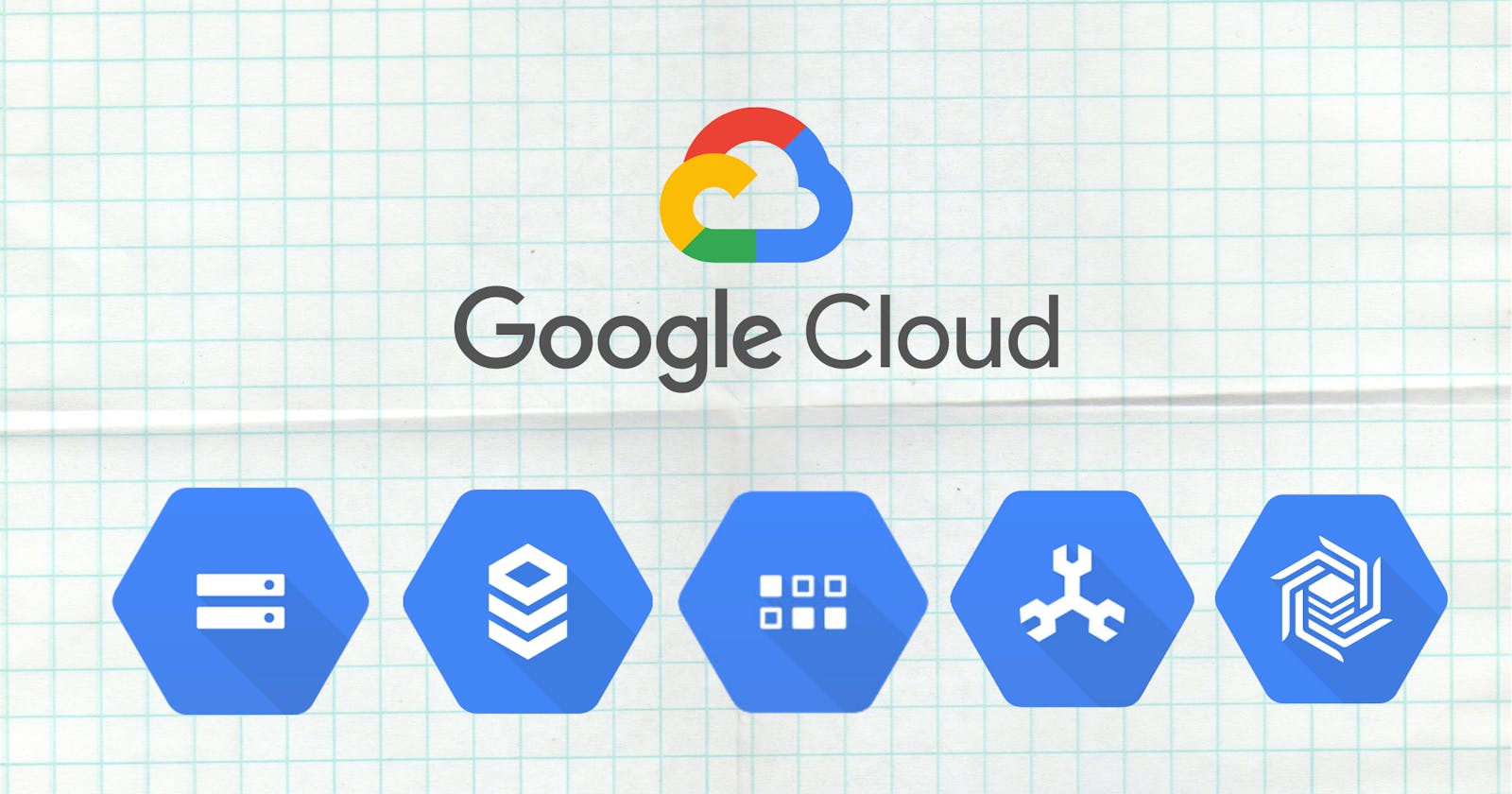Storage solutions help a corporation grow and maintain large scale systems, which is an important aspect of a Cloud Architecture. Storage solutions in any cloud computing platform must be flexible in order to meet business requirements. A cloud system's storage is meant to be reliable and secure. The Google Cloud Platform has storage solutions to meet practically any customer's demands. GCP provides storage for applications like AI/ML, Backups, Queues and more. In this article, we'll look at the five primary types of storage solutions offered by Google Cloud Platform, as well as the use cases, limitations, and strengths of each.
GCP Storage Options
Google Cloud Platform provides mainly five types of storage options:
- Cloud Storage
- Cloud SQL
- Cloud Spanner
- Cloud Datastore
- Cloud BigTable
Let's take a look at each of them one by one
Cloud Storage
Cloud Storage is a sort of storage that saves an arbitrary piece of data; it does not store data in files or disk blocks. The data in cloud storage is a sequence of bytes also known as 'blob' or a binary object. Before writing data to the disc, Google Cloud Storage also encrypts it without any additional cost. Cloud storage is a high-performance and scalable data storage solution. This sort of storage is mostly used for processing workflows containing intermediate data, backups, and archives. GCP also offers a file transfer service that allows you to move data from a hard drive or USB storage device to the Cloud Storage. Object versioning is another feature of Cloud Storage, which allows you to go back in time to any point in your storage.
There are four classes of Cloud Storage:
Multi-regional: It is used to store the most frequently retrieved data. It has a 99.95% availability rate, which means it is available 99.95% of the time during the year. This type of class has the highest storage price when compared to other classes, but because it contains frequently utilised data, it has the lowest retrieval price.
Regional: This class is nearly identical to the multi-regional class, with the exception that it contains data that must be accessible inside the same region, and it also costs less to store data in this type of class. This Cloud Storage Class has a 99.90% availability rate.
Nearline: It is suitable for backups and is used to store data that is accessed once a month. Nearline storage has a 99.90% availability rate. The cost of retrieval is higher than that of Regional and Multi-Regional classes, but the cost of storage is much lower.
Coldline: It is suitable for achieving and disaster recovery and is used to store data that is accessed once a year. When compared to other storage classes, the retrieval cost is the greatest and the storage cost is the lowest. It also has a 99.90 % availability rate.
Cloud SQL
The Cloud SQL is a Relational Database that provides access to MySQL and PostgresSQL databases. This form of GCP storage is ideal for lowering maintenance costs and providing completely managed databases. Every CloudSQL instance comes with its own firewall, which limits network access in specific manner. Automatic replication is also supported. Cloud SQL stores your backed-up data securely and makes it simple to restore from a backup and do a point-in-time recovery to a specified instance state. DMS (Database Migration Service) is included with CloudSQL, making it simple to convert your existing database to CloudSQL. CloudSQL works well with structured data that has constraints and rows.
Cloud Spanner
The Cloud Spanner is a horizontally scalable relational database management system. It has a high level of consistency and availability. The Cloud Spanner Storage has no size restrictions. Cloud Spanner improves performance by sharding data based on the number of requests and the amount of the data. Cloud Spanner is best suited for large-scale database applications requiring more than 2 TB of storage. Cloud Spanner is trusted by companies like vimeo and ShareChat to scale their apps.
Cloud Datastore
Cloud Datastore is a fully managed NoSQL database that handles scaling automatically. Cloud Datastore databases can grow to terabytes in size and beyond. The Schemaless access and free daily quota are the key benefits of Cloud Datastore. The built-in RESTful API and SQL-like queries enable convenient access to the Cloud Datastore. Cloud Datastore also supports ACID transactions and data encryption before writing it to the disk.
Cloud BigTable
The Cloud BigTable is a highly capable NoSQL, fully managed database service with a 99.999 % uptime guarantee. It is commonly used to handle massive amounts of analytical data. With its low latency, the BigTable can handle millions of requests per second. The BigTable is designed with storage engine for machine learning models. The Cloud BigTable can handle data sizes ranging from gigabytes to petabytes.
Conclusion
You learned about the many types of storage choices accessible on Google Cloud Platform in this article. You considered the advantages and disadvantages of each kind of storage. You also investigated the various storage classes offered in Google Cloud Storage.
The Google Cloud Platform has a lot more storage features; check out the official GCP docs for a complete list. Thank you for sticking around and reading this article. Also, follow me on Twitter to learn more about Python and web development.
